2003-02-18 10:58
New Customs Cargo Manifest Rules
U.S. Customs held a public meeting on the subject of new air cargo manifest requirements January 14 and has given the industry 10 days to comment. Industry representatives voiced strong opposition to proposed requirements to transmit manifest information to Customs 8 hours before lading for express carriers and 12 hours before lading for regular air freight. Concerns were also raised regarding bond coverage, liability issues and the consequences of Customs disallowing freight to be loaded. The express industry association intends to organize a meeting next week to develop a counter proposal for Customs' consideration. Posts are requested to inform appropriate authorities and associations so they can respond during the comment period.
The meeting on air cargo manifest requirement was the fist of four public meetings to be held by Customs on new cargo manifest requirements being promulgated as a result of the Trade Act of 2002. Meetings on rail, land and other non-containerized sea cargo will be held between January 15 and 23. Customs has given the air industry 10 days (until January 24) to comment on its proposal. Parallel to the 24-hour rule for container cargo, Customs is now seeking cargo manifests well before conveyance departure for air, rail, land and other non-containerized freight. Customs plans to issue the ruling by October first.
Air freight, air carriers, express shippers, industry associations and freight forwarders loudly and unanimously voiced opposition to Customs' proposal that air cargo manifests be transmitted 8 hours before lading in the case of express carriers, and 12 hours in advance for regular air freight. Concerns were also expressed about the implications of cases in which Customs disallows freight to be boarded, bond coverage and liability issues for foreigners. The express shipping industry association intends to organize a meeting next week at which a counter proposal will be drafted for Customs.
And the full text of the Customs proposal follows: All carriers, deconsolidaters, freight forwarders and some express consignment couriers will be required to utilize the Air Automated Manifest System (AAMS) to provide advanced, electronic cargo declaration information to Customs in a paperless environment.
Customs needs the information as far in advance as necessary to analyze the data and respond in sufficient time to prevent the lading of suspect shipments. The amount of time necessary will depend on the availability of automated targeting systems, the availability of Customs personnel to analyze the results and the volume of information to be analyzed. Current Customs regulations in the vessel environment require that the cargo declaration be submitted 24 hours prior to lading. Because of the time-sensitive nature of the air freight business, Customs proposes that the data be supplied 8 hours prior to lading for courier shipments and 12 hours prior to lading for other shipments.
The importing carrier will always have the complete air waybill information for simple and master air waybills. The carrier will also have the complete information for house air waybills when it delivers freight at the house air waybill level from its facility. Deconsolidators, freight forwarders, onward carriers, code share carriers and express consignment operators would have the house air waybill information for freight transferred to their facilities. Each of these entities could secure a Customs bond and participate in the AAMS to provide the information to Customs. If any one of these parties does not choose to satisfy these requirements, they would be required to furnish all of the information to the importing carrier, which would send the information to Customs through the AAMS. For those express couriers that already have Customs approved electronic manifest systems, those systems may continue to be utilized. All other express couriers will be required to use the AAMS.
The AAMS participants will be required to transmit all of the data as required in the Customs Automated Manifest Interface Requirement Air document. In addition, programming changes will be implemented to require additional data elements; examples of which may be: dangerous goods indicator, airport of departure, and scheduled date and time of departure. All air carriers will be required to participate in the AAMS at all U.S. ports at which they have direct arrivals. Carriers will utilize the AAMS to request electronically all permits to transfer and in bond movement authorizations.
Customs will notify the parties via the AAMS with messages stating that certain shipments must be held for security purposes or the data provided is insufficient to make a determination and that the party must provide better data for Customs to analyze.
Some trade participants have never participated in the AAMS and will need to purchase or develop the hardware and software necessary to participate. All parties will need to enact measures to comply with data quality requirements and supply the data in the specified time frame. Carriers will need to develop procedures to ensure that selected cargo is not loaded onto their aircraft.
A phased-in transition period will occur. Current participants in the AAMS will be required to comply with the data quality and cut-off time requirements within three months of the publication of the final rule. Non-AAMS participants will be required to begin transmitting electronic manifest information within two months of the publication of the final rule and meet the data quality standards within the three-month time frame.
Posts may draw on the following in their contacts with relevant ministries, local airlines, express delivery and cargo agents and associations::
- US Customs is mandated law to provide additional screening of cargo before it departs for the United States.
- Its proposal is a first draft of what will become a regulation by October 1, 2003.
- Customs is soliciting comments, especially about how much time is required for agents to provide Customs with air cargo manifest electronically and to remove cargo when it is determined to be NO Board.
- Issues such as bonding and legal liability may also be of concern.
- Comments should be sent to
The meeting on air cargo manifest requirement was the fist of four public meetings to be held by Customs on new cargo manifest requirements being promulgated as a result of the Trade Act of 2002. Meetings on rail, land and other non-containerized sea cargo will be held between January 15 and 23. Customs has given the air industry 10 days (until January 24) to comment on its proposal. Parallel to the 24-hour rule for container cargo, Customs is now seeking cargo manifests well before conveyance departure for air, rail, land and other non-containerized freight. Customs plans to issue the ruling by October first.
Air freight, air carriers, express shippers, industry associations and freight forwarders loudly and unanimously voiced opposition to Customs' proposal that air cargo manifests be transmitted 8 hours before lading in the case of express carriers, and 12 hours in advance for regular air freight. Concerns were also expressed about the implications of cases in which Customs disallows freight to be boarded, bond coverage and liability issues for foreigners. The express shipping industry association intends to organize a meeting next week at which a counter proposal will be drafted for Customs.
And the full text of the Customs proposal follows: All carriers, deconsolidaters, freight forwarders and some express consignment couriers will be required to utilize the Air Automated Manifest System (AAMS) to provide advanced, electronic cargo declaration information to Customs in a paperless environment.
Customs needs the information as far in advance as necessary to analyze the data and respond in sufficient time to prevent the lading of suspect shipments. The amount of time necessary will depend on the availability of automated targeting systems, the availability of Customs personnel to analyze the results and the volume of information to be analyzed. Current Customs regulations in the vessel environment require that the cargo declaration be submitted 24 hours prior to lading. Because of the time-sensitive nature of the air freight business, Customs proposes that the data be supplied 8 hours prior to lading for courier shipments and 12 hours prior to lading for other shipments.
The importing carrier will always have the complete air waybill information for simple and master air waybills. The carrier will also have the complete information for house air waybills when it delivers freight at the house air waybill level from its facility. Deconsolidators, freight forwarders, onward carriers, code share carriers and express consignment operators would have the house air waybill information for freight transferred to their facilities. Each of these entities could secure a Customs bond and participate in the AAMS to provide the information to Customs. If any one of these parties does not choose to satisfy these requirements, they would be required to furnish all of the information to the importing carrier, which would send the information to Customs through the AAMS. For those express couriers that already have Customs approved electronic manifest systems, those systems may continue to be utilized. All other express couriers will be required to use the AAMS.
The AAMS participants will be required to transmit all of the data as required in the Customs Automated Manifest Interface Requirement Air document. In addition, programming changes will be implemented to require additional data elements; examples of which may be: dangerous goods indicator, airport of departure, and scheduled date and time of departure. All air carriers will be required to participate in the AAMS at all U.S. ports at which they have direct arrivals. Carriers will utilize the AAMS to request electronically all permits to transfer and in bond movement authorizations.
Customs will notify the parties via the AAMS with messages stating that certain shipments must be held for security purposes or the data provided is insufficient to make a determination and that the party must provide better data for Customs to analyze.
Some trade participants have never participated in the AAMS and will need to purchase or develop the hardware and software necessary to participate. All parties will need to enact measures to comply with data quality requirements and supply the data in the specified time frame. Carriers will need to develop procedures to ensure that selected cargo is not loaded onto their aircraft.
A phased-in transition period will occur. Current participants in the AAMS will be required to comply with the data quality and cut-off time requirements within three months of the publication of the final rule. Non-AAMS participants will be required to begin transmitting electronic manifest information within two months of the publication of the final rule and meet the data quality standards within the three-month time frame.
Posts may draw on the following in their contacts with relevant ministries, local airlines, express delivery and cargo agents and associations::
- US Customs is mandated law to provide additional screening of cargo before it departs for the United States.
- Its proposal is a first draft of what will become a regulation by October 1, 2003.
- Customs is soliciting comments, especially about how much time is required for agents to provide Customs with air cargo manifest electronically and to remove cargo when it is determined to be NO Board.
- Issues such as bonding and legal liability may also be of concern.
- Comments should be sent to
많이 본 기사
- 신년특집 기획/ 새해 컨시장 기상도 유럽 상승 vs 북미 혼조컨운임지수 넉달만에 2500선 넘어…6주 연속↑상하이항 5000만TEU·싱가포르항 4000만TEU 나란히 돌파BDI 1015포인트…케이프·수프라막스선 하락세 이어져태웅로직스, 한화토탈에너지스 우수 파트너사 선정해양수산부, 김혜정 신임 부산해수청장 선임대한조선, 그리스 선사 발주 석유제품운반선 4척 동시명명SK인천석유화학, 3300t급 급유선 도입…“서해 벙커링시장 경쟁력 강화...해운협회, 부산항내 중대재해 예방 안전캠페인인천신항 선광신컨테이너터미널, 전기구동 야드트랙터 13대 도입
- 해운조합, 전환교통지원사업 24일까지 공모강도형 해수부 장관, “새해 글로벌공급망 관리 중점 추진”여수해경, 해양환경관리 모범선박 예인선 <세진 101>호 선정경기평택항만공사, 평택·당진항 배후단지 업무편의시설용지 분양관세청, 설맞아 수출입화물 선적지원·24시간 통관등 특별대책 시행인사/ 우진글로벌로지스틱스부음/ 한국선급 최원준 부사장 모친상‘항만효율화 공로’ 주성씨앤에어 박진수 대표, 해수부 장관표창 영예롯데글로벌로지스, ‘소비자불만해결 우수사업자’ 선정BPA, 신년맞이 동절기 부산신항 안전관리 실태 점검
스케줄 많이 검색한 항구








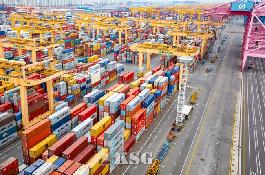
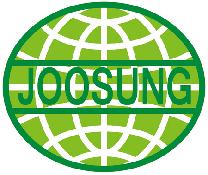



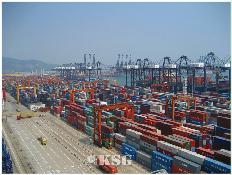
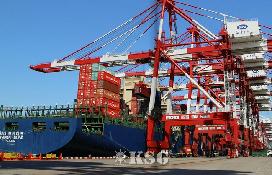
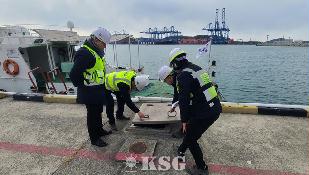
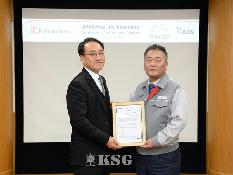
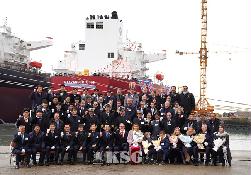

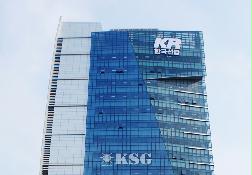
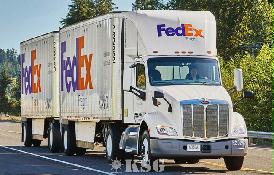



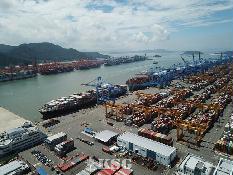
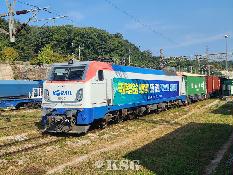



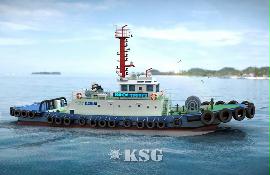
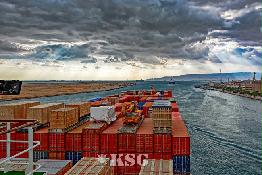








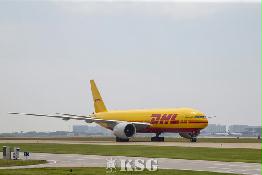
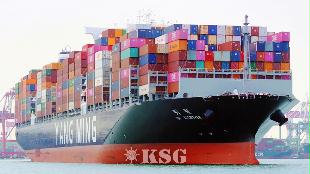
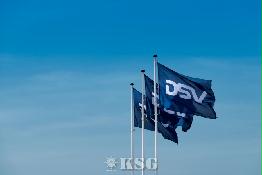























0/250
확인